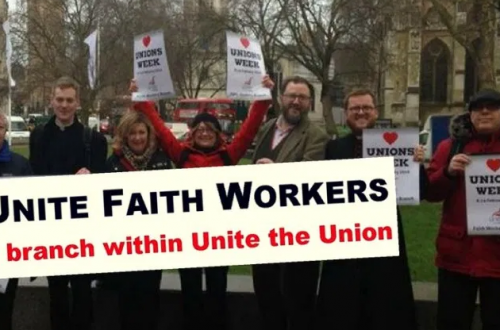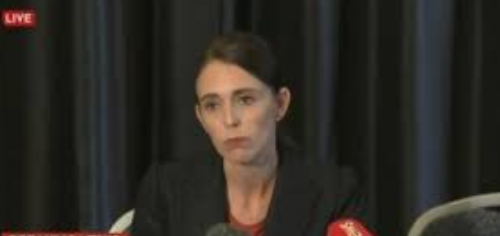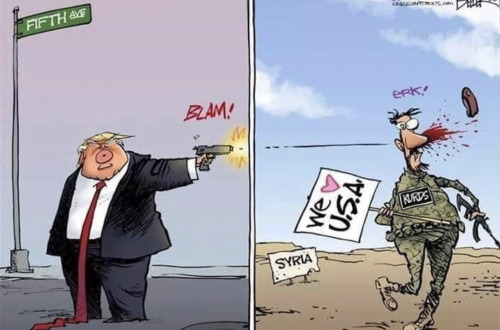This is a cross-post from Marc’s Times of Israel blog
A video has been circulating around Israel of a soldier called David Admov pulling his weapon and cocking it in the face of a 15 year old Palestinian. Watch it below, it’s only a minute and a half long.
At first I watched this believing that the soldier in question had been jailed for the offence. It later turned out he had been jailed for assaulting two senior officers.
Interestingly enough when it was believed that David had been jailed for the events depicted in the video there was a massive grassroots show of support for him from fellow soldiers. It’s not hard to understand why. David’s there on his own, he’s surrounded by people filming and taking photos of him and one Palestinian getting right up in his face.
What was he supposed to do in that situation? He’s in a bind because he knows that the harsher he behaves the greater his chances of escalating the situation. The weaker he behaves the greater danger he places himself in. A soldier who behaves weakly invites attack, invites greater attention from all of those people with cameras.
What if David hadn’t cocked his rifle and all those people had rushed at him?
A soldier on occupation duties is walking a very fine line indeed. Everyone around him is a potential terrorist. His job is to treat them as such. By treating them as such he is raising the ire of human rights groups. Many of whom have activists permanently on the ground in Hebron. They then insist that the IDF is guilty of human rights abuses. Then there are the settlers wandering around Hebron also. Ideologically they refuse to be afraid and insist on walking anywhere they wish. Making it a great deal harder for soldiers to protect them. Soldiers like David are stuck right in the middle, every day of their service.
Clearly I’m not the only one who thinks so. Pictures showing support for David have appeared all over Facebook from Israeli soldiers anonymously making their feelings known. Many have been published by the Times of Israel here. You’ll see just about every combat unit in the IDF is represented. I feel their frustration.
Training for combat soldiers in the IDF consists of a few main factors; physical fitness, familiarity with weapons and an ability to withstand the shock of combat. There are a few other things in there too but dealing with unarmed civilians isn’t a priority. I know I never received any training to that effect. I know a lot of soldiers and I don’t know a single one who has. Training is on the job. You learn from the guys who have been there longer.
The truth is that for a very long time we’ve been sending our soldiers into an environment we haven’t trained them for and expected them to cope. Although there have been a few, widely publicized, courses they are not a part of standard training and few soldiers are lucky enough to be sent on them. In an environment of high stress and little training it’s no wonder that soldiers have been lining up to express their discontent.
Since the first Intifada soldiers have been subject to photographers blocking their path while on duty. Their every move is being scrutinized. Videos that are shot with a telephone can be uploaded to Youtube in real time. Hardly a factor to reduce the tensions of such an environment. It’s truly amazing that there are so few things to report.
In response to the Facebook campaign the Chief of Staff Benny Gantz said the following to his staff;
“It’s important that we remember and tell our subordinates in a clear manner that Facebook is not a command tool. It is here, and that’s a fact, but it is not a replacement or even a parallel channel for dialogue between commanders and their soldiers.”
So he’s saying that soldiers who feel strongly on this issue should request a meeting with him and say so? Bizarrely in a statement where the word “clarity” is used I am unable to find anything here that would help a soldier know how to express themselves in an alternative way to Facebook and have any effect.
He’s missing the point. Soldiers aren’t looking for dialogue with their commanders, they’re looking for help. The frustration being expressed here is tangible. No officer wants to be the one to say that it’s okay to load your weapon and shout at civilians. The higher the rank the less inclined officers are to say the clear words soldiers need to hear. That as a soldier doing his job you need to get aggressive to protect yourself and others.
But they can’t say that. they can’t admit to the truth, that occupation is messy and stressful and going on everyday. Our leaders simply aren’t prepared to take the political risks that come from instructing their soldiers in the ways that they need to behave to ensure that occupation continues.
This has lead to a mixed message. On the one hand we tell our combat forces that we are proud of them and that what they are doing is the right thing. On the other hand no one will go out in public and officially say that the methods soldiers use in order to do their jobs have the full backing of the army and most importantly of the high command.
The IDF needs to provide more training to soldiers and more public protection to soldiers caught in the headlights of activists. It’s way past time!


